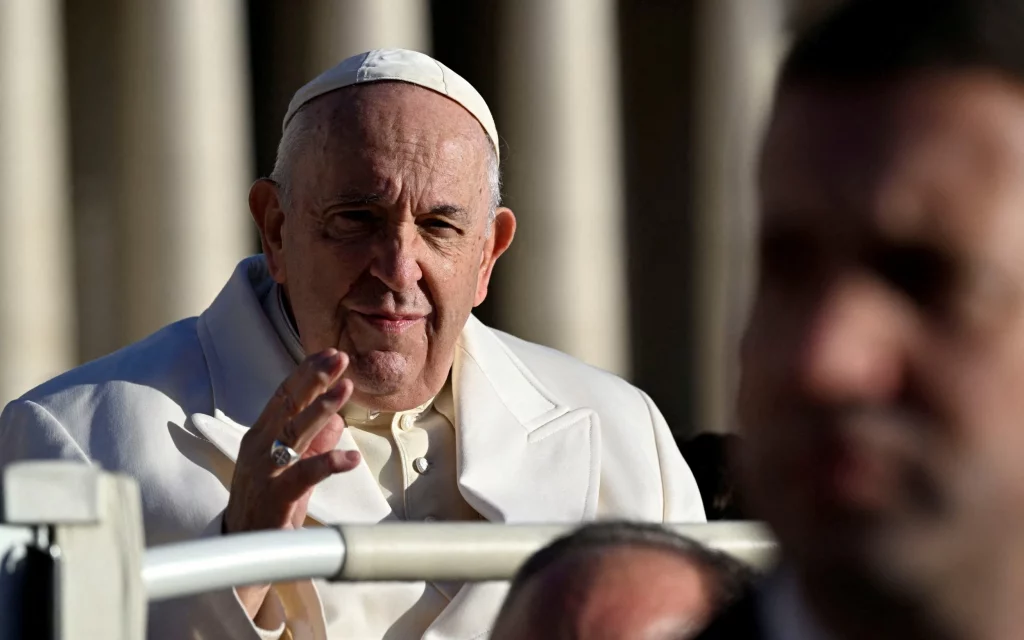In a bizarre turn of events, Pope Francis has been caught in a crossfire of sorts in the raging war between Russia and Ukraine. He is solely to blame for unwittingly championing Russia’s cause and helping President Vladimir Putin reinforce Russia’s territorial, spiritual and cultural claim over Ukraine. Kyiv, as is natural, is bristling with anger at the Pope. The bone of contention is the Pope’s recent video speech to the All-Russian Meeting of Catholic Youth in St Petersburg, urging them to “not forget their heritage.” It has struck a discordant note in international political discourse, not so much for its religious content as for the Pope’s unstinted praise of the heritage of “Mother Russia,” which he urged his listeners to never give up. Surprisingly, the Pope’s words echoed what Putin and his propaganda team has been saying all these years to justify Russia’s claim that Ukraine is its integral part. The Pope told the Russian Catholic youth that they are descendants of great Russian saints, rulers, “Peter I, Catherine II, that empire.”
Precisely, such invocation of Russia’s imperial legacies has been regularly used as a historical justification for the military invasion of Ukraine. In this context, the Pope’s exhortation has turned out to be particularly insensitive and unwarranted. Putin has been politicising religion in Russia’s imperial design to grab territories in its neighbourhood. In fact, the Kremlin’s official discourse since 2014 has claimed Kyiv as “the mother of Russian cities” on the back of shared religious heritage. Putin has used the history of the Russian empire and Soviet Union to assert, on the eve of the invasion, that Ukraine was “an inalienable part of our own history, culture and spiritual space.” Last February’s invasion was preceded by Putin’s 7,000-word essay “On the historical unity of Russians and Ukrainians.”
Rewriting a country’s history and interpreting it to suit the interests of a particular regime or ruler has been a trend in different countries. The process is sought to be legitimised through indoctrination of the country’s people from the school level. Under Putin’s regime, new school textbooks depict the “special military operation” in Ukraine as part of the country’s historical mission. Though this exercise has gained fresh impetus in recent years, the Russian government launched a special commission in 2009 “to counter attempts to falsify history.” The efforts to ‘correct’ history intensified as discontent with Putin’s leadership grew. The intolerance to an objective, critical appraisal of history assumed such proportions that in 2021, Memorial, the human rights group founded to document Soviet political terror and its victims, was closed midway through its work.
The national ideology deployed by the Russian Federation over the past decade is one that glorifies the imperial past. Such glorification is closely linked with Russia’s self-proclaimed role as a religious authority. Legacies of the empire – among them territorial conquests, cultural subjugation and religious dogma – have been appropriated by the Kremlin to provide the basis for Russia’s invasion of Ukraine. This is why Ukraine calls the Pope’s praise of the heritage of the Russian empire unfortunate since it seems to overlook how the history of both the Orthodox church and the Russian empire have been weaponised in Russia to justify its invasion.
The clarification from the Vatican that the Pope had no intention to justify the invasion has, so far, failed to assuage the feelings of the Ukrainians. More so because the Pope had earlier questioned the sagacity of Ukraine’s decision to seek NATO membership.
Religious leaders would do well to steer clear of politics at this crucial stage in history lest their words be used to justify wrongs.
